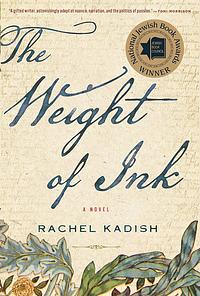Take a photo of a barcode or cover
challenging
emotional
slow-paced
Plot or Character Driven:
Plot
Strong character development:
Yes
Loveable characters:
Complicated
Diverse cast of characters:
Complicated
Flaws of characters a main focus:
No
challenging
dark
emotional
inspiring
reflective
medium-paced
adventurous
mysterious
reflective
slow-paced
Plot or Character Driven:
Character
Strong character development:
Yes
Loveable characters:
Yes
Diverse cast of characters:
No
adventurous
dark
emotional
informative
inspiring
reflective
medium-paced
Plot or Character Driven:
A mix
Strong character development:
Yes
Loveable characters:
Yes
Diverse cast of characters:
Yes
Flaws of characters a main focus:
Yes
Chagrined about her forced retirement and the devastating onset of Parkinson's, Helen Watt is absolutely mesmerized when she is called to review a cache of documents discovered in a cabinet under the stairs by the new owners of an estate in Richmond-on-the-Thames. Along with research assistant/flailing Ph.D. student Aaron Levy, Helen determines that the documents reveal a series of unexpected details of life in the displaced Portuguese Jewish community living in London in the mid-seventeenth century. Through Helen and Aaron's research, as well as the second, historical timeline set in the 1660s, we are introduced to Ester Velazquez, an orphaned young Jewish woman who worked as a scribe to a community rabbi and explored her own theories of philosophy as she learned with him.
The research and historical setting of this novel were absolutely phenomenal. It is clear, both from the text itself, as well as Rachel Kadish's Author's Note, how much energy and intention went into developing and writing this story, which covers Jewish daily life in London, Portugal, Amsterdam, preservation of historical documents, seventeenth century Jewish philosophy, the history of Masada and early immigration to Israel, and so much more.
I absolutely loved Helen's story. The flashbacks to her volunteering years in Israel were moving and tragic, with such beautiful imagery and tone. I loved the depiction of her Parkinson's and her frustration with her department, as well as the development of the relationship between her and Aaron, who started with a tremendous amount of tension and slowly developed an appreciation, respect, and even scholarly love for each other. It was amazing to see the communication that happened between the lines as they learned how much they valued each other throughout their research on the project, especially when a second team began competing for solutions.
The seventeenth-century historical timeline was interesting and unusual in the genre of historical fiction, and I was so appreciative of Kadish's craft (described in the Author's Note) of writing this section in a readable and historically relevant way. However, I tend to struggle with historical fiction because I am incredibly particular about the balance of fitting the story into its historical context without actually rewriting history. As such, I was skeptical about the inclusion of such major philosophers as Spinoza and Thomas Hobbes, though I was ultimately content with their storylines; however, the final Shakespeare's granddaughter twist felt unnecessary, false, and a disappointing ending that actually cheapened the story that had been developed.
The research and historical setting of this novel were absolutely phenomenal. It is clear, both from the text itself, as well as Rachel Kadish's Author's Note, how much energy and intention went into developing and writing this story, which covers Jewish daily life in London, Portugal, Amsterdam, preservation of historical documents, seventeenth century Jewish philosophy, the history of Masada and early immigration to Israel, and so much more.
I absolutely loved Helen's story. The flashbacks to her volunteering years in Israel were moving and tragic, with such beautiful imagery and tone. I loved the depiction of her Parkinson's and her frustration with her department, as well as the development of the relationship between her and Aaron, who started with a tremendous amount of tension and slowly developed an appreciation, respect, and even scholarly love for each other. It was amazing to see the communication that happened between the lines as they learned how much they valued each other throughout their research on the project, especially when a second team began competing for solutions.
The seventeenth-century historical timeline was interesting and unusual in the genre of historical fiction, and I was so appreciative of Kadish's craft (described in the Author's Note) of writing this section in a readable and historically relevant way. However, I tend to struggle with historical fiction because I am incredibly particular about the balance of fitting the story into its historical context without actually rewriting history. As such, I was skeptical about the inclusion of such major philosophers as Spinoza and Thomas Hobbes, though I was ultimately content with their storylines; however, the final
Beautiful, brilliant, expertly researched... Bravo! The novel opens as Helen, a professor close to retirement, has been asked to come to one of her former student's home to examine some documents he finds under the steps of a house he and his wife wish to turn into a gallery. They want the documents removed as soon as possible so construction can begin and the timeline maintained. What Helen finds, takes her to her knees. The documents were treasures. The university allowed others in addition to Helen and her assistant to study them. Helen's health begins to suffer. I can reveal very little in this review as there are spoilers. Yet the back and forth between the current time period and the seventeenth century was smooth and utterly fascinating. This reader learned so much about Jewish history, which for me in my limited world view seemed to be at its absolute worst persecution during the Nazi regime. This novel brought crystal clear the persecution over centuries, as well as the limited role women were allowed to play...basically sit still and look pretty. I listened to this book on Audible. It was expertly narrated. I appreciate Rachel Kadish so much for her tender love and care of this extensive story. An absolute masterpiece.
Uninteresting characters and story. Too wordy
emotional
inspiring
reflective
medium-paced
Plot or Character Driven:
Character
Strong character development:
Yes
Loveable characters:
Yes
Diverse cast of characters:
Yes
Flaws of characters a main focus:
Yes
There are few books in the world that have imprinted themselves on my soul. This book is one of them. I do not think I will ever forget this book. Rachel Kadish expertly wove the present and the past together to create a beautiful and poignant story of excellent prose. She uses third person limited along with some expository sections to tell the story. I have read many books that have tried to do what Kadish did in this book and only she has fully achieved her goal.
The paths of our three main characters: Helen, Aaron, and Esther are interwoven and unique with parallels between them all and a satisfying conclusion for each of them. Despite being fictional, I also learned a lot from the historical surroundings of the book and I look forward to doing more research on the history of the Jewish diaspora in the 17th century.
This book will change your life and you should definitely read it as soon as you can. I rented the audiobook for free from my library and it was fantastic.
The paths of our three main characters: Helen, Aaron, and Esther are interwoven and unique with parallels between them all and a satisfying conclusion for each of them. Despite being fictional, I also learned a lot from the historical surroundings of the book and I look forward to doing more research on the history of the Jewish diaspora in the 17th century.
This book will change your life and you should definitely read it as soon as you can. I rented the audiobook for free from my library and it was fantastic.
Graphic: Genocide, Torture, Violence, Xenophobia, Antisemitism, Death of parent, Fire/Fire injury, Outing, Alcohol, Injury/Injury detail
Moderate: Child death, Death, Homophobia, Blood, Colonisation, Classism
Minor: Chronic illness, Misogyny, Rape, Excrement, Vomit, Car accident, Pregnancy
The book covers explicit descriptions of torture endured at the hands of the Spanish Inquisition. It also covers the expansion of Jewish people in London in the 1660's, as such there is some explicit antisemitism. There is also explicit descriptions of the house fire that killed Esther's parents. There is minor alcohol drinking by most characters at one point or another. There is explicit stories and flashbacks of Esther's mother being an emotionally abusive alcoholic. There is a lot of death. A good portion of the book happens during an out break of the plague and four major characters die by the end of the story. Mary gets pregnant and it's mentioned only so much as in descriptions of her body and clothes. There is a violent mob scene towards the end where Esther is violently groped on screen. It's a short mention, but it is brought up later in her happy future as a reference to potential PTSD. There is also an explicit scene of Alvarro being outed as gay in front of a mob of spectators. He's dragged home by his father and then impressed upon a ship.
This is an amazing book. The start was a bit slow, but once it gets going, it’s gripping. It’s beautifully written and the historical detail is mostly excellent (only one howler — St Paul’s did not have a dome before the Great Fire of London, it had a tower). The author has meticulously researched the Sephardic Jewish community of Amsterdam and their history. She also asked Rebecca Goldstein (who is an expert on Spinoza) to check the philosophy bits. I highly recommend Goldstein’s book Betraying Spinoza; it’s fascinating. I initially didn’t like the modern characters, Helen and Aaron, but once you realize why Helen is the way she is, and once Aaron warms up a bit, you might come to care about them. The academic politics are accurate, too. And I liked the two Patricias, the librarian and the conservator. The 17th century characters are well drawn and fascinating. I especially liked Ester and Alvaro. This is primarily a book about people who want things but cannot have them, and what they do in response to that situation. It’s about life and people and books. I’d already figured out the big reveal at the end but was glad to have it confirmed, but there’s another good twist at the end that I did not see coming.
challenging
reflective
slow-paced
Plot or Character Driven:
A mix
Strong character development:
Yes
Loveable characters:
Yes
Diverse cast of characters:
Yes
Flaws of characters a main focus:
Yes
A woman’s body, said the world, was a prison in which her mind must wither.
The Weight of Ink is a lovely book. It's still on my mind, more than a week after I read it, so I decided to come back and say a few words in a review. I loved the tenaciousness of young Ester, her determination to study and to think independently in a time when women were not merely discouraged but were forbidden to study. And I loved Helen's perseverance in the face of her illness. I even developed some affection for Aaron, in spite of his careless arrogance.
It was just a beautiful, absorbing read for me, and I highly recommend it.
The Weight of Ink is a lovely book. It's still on my mind, more than a week after I read it, so I decided to come back and say a few words in a review. I loved the tenaciousness of young Ester, her determination to study and to think independently in a time when women were not merely discouraged but were forbidden to study. And I loved Helen's perseverance in the face of her illness. I even developed some affection for Aaron, in spite of his careless arrogance.
It was just a beautiful, absorbing read for me, and I highly recommend it.






